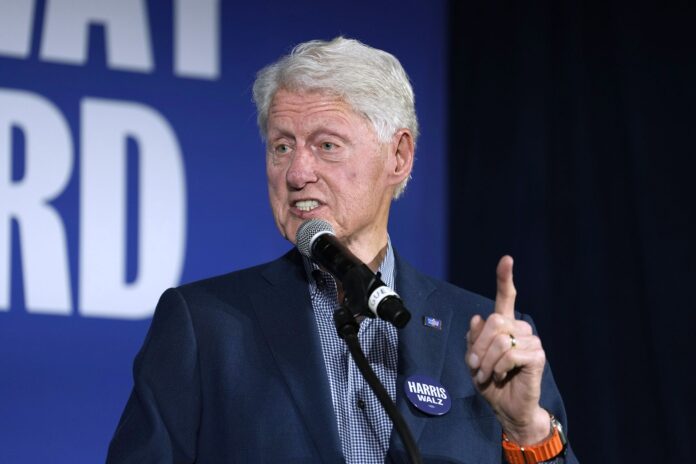EnterpriseIssues
With Siaka Momoh
This piece, sourced from ArchivesSiakaMomoh, was first published in September 2006.
It is good to be on vacation. Yours sincerely just came back from one and enjoyed every bit of it. It gave one time to catch up with one’s reading. Bill Clinton’s My Life, a 957-page autobiography, came in handy. This is one book that leaders and those aspiring to be one will find useful. My Life is a must reference book for our myriad of politicians who, from the way we have seen them going about the business of governance, need political tutorials.
In the US, as revealed in Clinton’s autobiography, you do not just come from no where and start gunning for top political office. You must go through the mill; you must cut your teeth in politics by starting off from the grassroots and then move up. Bill Clinton and many of his peers, who became top politicians, did just that. He started right from school – he was in student union politics. He lost and won elections.
Bill had a humble beginning. He was born William Jefferson Blythe III on August 19, 1946, three months after his father had died in a traffic accident. His mother remarried, wedded Roger Clinton. Bill had to adopt his step father’s name. Bill new where he was coming from – so was determined to be a success in life.
Bill Clinton met John Kennedy while in high school in White House Rose Garden. The encounter made him enter a life of public service. As an undergraduate, he shuttled between school and work. He worked with senators, undergoing political pupilage. He learnt the ropes; he thus got himself equipped for the turf political terrain ahead.
This was beside the intellectual empowerment he got in school. He graduated from George Washington University in 1968, won Rhodes Scholarship to Oxford, had a law degree in Yale in 1973, and entered politics in Arkansas, his state, kicking off with the State’s Congress ) the equivalent of our own State House of Assembly. Rhodes Scholarship was established in 1903 by Cecil Rhodes’ will. Rhodes, who made a fortune in South Africa’s diamond mines, provided for scholarships for young men from former British colonies who had demonstrated outstanding intellectual, athletic and leadership qualities.
He was defeated in his campaign for Congress in Arkansas’s Third District in 1974. Clinton was elected Arkansas Attorney General in 1976, and won the governorship in 1978. After losing a bid for a second term, he regained the office four years later, and served until he defeated incumbent George Bush and third party candidate Ross Perot in the 1992 presidential race. Thus Clinton served several terms as governor of Arkansas, but the state’s constitution allowed it. This looks like what OBJ wanted to predicate his quest for a third term on.
Under Bill Clinton ( full name William Jefferson Clinton) US enjoyed more peace and economic wellbeing than any time in history. He remains first Democratic President since Franklin Roosevelt to win a second term.
Good enough, Clinton had heroes, which kept him focused, a good thing for a purposeful politician. John Kennedy was one, J. William Fulbright is another. His political outlook and operation reflected what these two stand for, what they stand for is in consonance with his belief. He liked Fulbright for example because Fulbright was interested in things besides politics. For Fulbright, the purpose of politics was to enable people develop all their faculties and enjoy their fleeting lives . The idea that power was an end in itself , rather than a means to provide security and opportunity necessary for the pursuit of happiness seemed to him stupid and self-defeating.
Fulbright believes great nations get into trouble and can go into long term decline when they are arrogant in the use of their power, trying do things they shouldn’t do in places they shouldn’t be. He thinks for instance that that when US “brings its power to bear in the service of of an abstract concept like anticommunism, without understanding local history, culture and politics, will do more harm than good”.
No wonder Clinton soft-pedalled over Iraq and was against America’s exploits in Vietnam. His testimony: I had certainly tried to make America the 21st century’s leading force for peace and prosperity, freedom and security. I had tried to put a human face on globalization by urging other nations to join us in building a more integrated world of shared responsibilities, shared benefits and shared values, tried to lead America through its transition into the new era with a sense of hope and optimism about what we should do, and a sober sense of what the forces of destruction could do to us. Finally, I had tried to build a knew progressive politics rooted in new ideas and old values and to support like-minded movements around the world.



